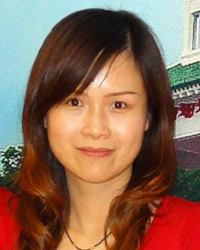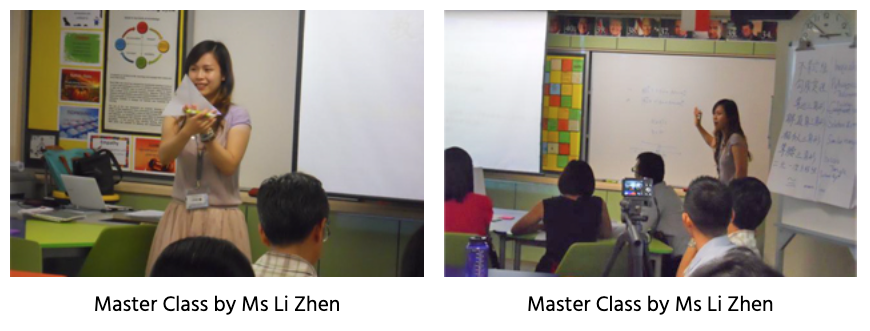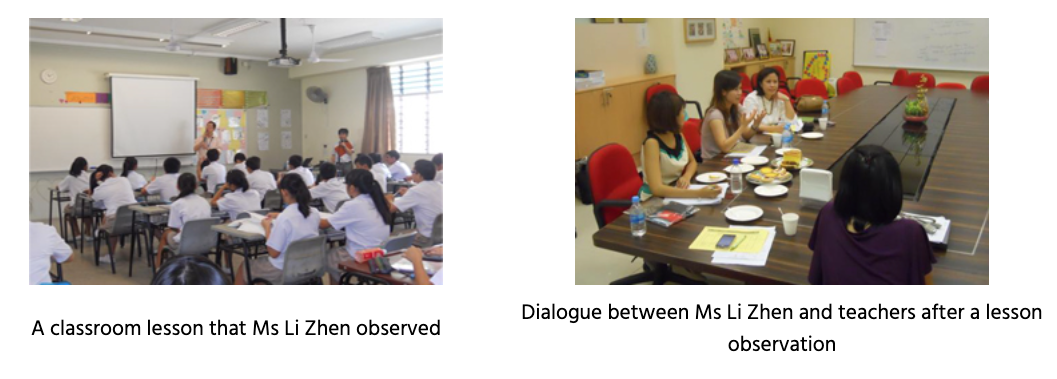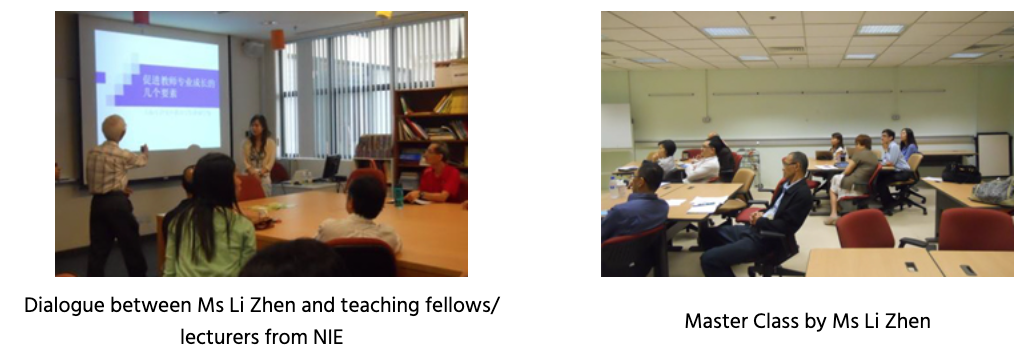Ms Li Zhen (1 to 15 August 2012)
Ms Li Zhen (1 to 15 August 2012)
AST’s 5th OEIR

Her profile and background are as follows:
Mathematics teacher in Shanghai Jing’an Education College Affiliated School
National Outstanding Teacher Award (2009)
First prize in Teaching Ability Competition, Jing’an District (2008)
Presented at 11th International Congress on Mathematical Education, Mexico (2008)
Young Educator Award, Jing’an District (2007)
During her attachment, Ms Li Zhen was largely engaged in Master Classes, school visits and dialogues with members of the teaching fraternity.
At the Master Classes, she shared ‘The Post Teahouse’ teaching methodology practiced in her school. There are three basic teaching segments: students learning content by themselves wherever possible; teacher facilitating the uncovering of their misconceptions and understanding; and finally, teacher and students solving the problem together.
Our teachers got to experience ‘The Post Teahouse’ teaching methodology during the workshop. There were also hands-on activities, such as the designing of a lesson idea on the topic ‘Simultaneous Equations’, and the modification of a typical question in Geometry into different Master Class by Mr Thomas Daccord Master Class by Mr Thomas Daccord variations that require higher-order problem solving, integration and application of what they have learned in the topic. Although the Master Classes were conducted in Mandarin, participants were able to comprehend the content as MTT Mdm Foo had supported the Master Classes by providing translation of Mathematics terms in English.

Ms Li Zhen also visited three schools during her stint: Anderson Secondary School, Clementi Secondary School and Tampines Secondary School. The post-lesson discussions focused on Ms Li Zhen’s observations and possible areas for improvements of the lessons. She also shared how she would have conducted a lesson in Shanghai on the same topic. Her sharing provided our teachers with new insights to the importance of scaffolding, and of the need to link ideas and concepts for better understanding by the students. In one lesson, she was able to point out an area for improvement in the lesson design, as the teacher could have used one more example (step 2) to demonstrate the concept that advanced from step 1 to step 3. This clearly showed that content mastery was as important in effective lesson planning as was pedagogical delivery.

Two professional dialogues were conducted with Ms Li Zhen: one with officers from Curriculum Planning and Development Division (CPDD), and another with teaching fellows/lecturers from the Mathematics and Mathematics Education (MME) department from the National Institute of Education (NIE). The dialogue with CPDD facilitated the discourse on the importance of allowing students to verbalise and to articulate their mental model when a new idea/concept is introduced, while the dialogue with MME allowed for a deeper understanding of the strengths of both Singapore’s and Shanghai’s Mathematics teaching, the process of learning Mathematics, and how a teacher’s professional development is a continual process of research and of reflective practice.

Based on the feedback received, Ms Li Zhen had created a positive impact on all with whom she had interacted during her attachment in Singapore. Many teachers were very impressed by her passion in Mathematics, and by her sharing of new perspectives and insights.

